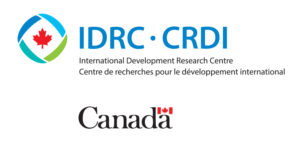By Akosua Keseboa Darkwah

Map of field sites in Ghana.
The year 2020 will go down in history as the year when all countries across the world imposed a myriad of barriers on their citizens in an effort to control the spread of COVID-19 within their borders. Ghana was no exception. Beginning in mid-March 2020, the Ghanaian government put in place a number of measures including a lockdown, mandatory wearing of facemasks in public, closures of land and air borders, closure of schools, hotels, restaurants, bars, and nightclubs, and a ban on social gatherings including funerals, weddings, and church services. Some of these restrictions were lifted quite quickly such as the lockdown which lasted three weeks, while others such as school closures were in place for nine months for those students who were not examination candidates.
In our study of the impact of COVID-19 on Ghana’s food system, a project funded by the International Development Research Centre, we have been exploring the implications of COVID-19 measures for women in the food system in Wa, Techiman, and Accra. One specific research question has been to explore the impact of COVID-19 regulatory interventions on women in local food production systems and their forward and backward linkages.
In this regard, we find that the restrictions on schools and social gatherings had quite devastating effects on food vendors and caterers. Food vendors across the country who sold primarily to children had reduced the scale of operations in tandem with the loss of customers. A vendor we spoke to in Techiman who sold gari (granulated cassava), fried plantains (savoury banana), and beans to mostly school children had to cut her production in half when schools closed.
This reduction in the scale of operations of food vendors had ripple effects on other actors in the food system, specifically the traders or food processors from whom they bought their inputs. One such actor we spoke to in Wa in the Upper West corner of Ghana made the connections between these actors clear. In describing the situation, she said:
“COVID-19 brought us nothing good. It only brought us bad business. The food vendors in the school constituted more than 70% of my client base and since the closure of the schools, I have not been in good business. Yesterday, I had to go to one of the food vendors to borrow money just to buy lunch and I used part of it to buy ingredients to prepare dinner for my household just because I could not make any sales. This is how bad the situation is because of COVID-19.”
This woman who had been in the rice processing business for 25 years used to mill 10 bags of rice weekly for food vendors who in turn cooked and sold it to students prior to the lockdown. Once the schools closed down, however, the food vendors did not require large supplies of rice so they stopped buying from her as well. She was now down to selling between two and three bags of rice a month.
The impact of COVID-19 was not limited to the northern part of Ghana alone. In the Techiman market in central Ghana, traders of various food items lamented that business had slowed down because of the restrictions on social gatherings. Their clients, specifically caterers, who tended to buy in large quantities had all but disappeared from the markets. It was not just the traders who felt the absence of these caterers. Auxiliary service providers in the markets, such as truck pushers who helped to move goods, were also not in as high demand as before. Local eateries known as ‘chop bars’ were feeling the pinch as well. Even when the restrictions on eateries were lifted, the owners of these eateries near the Techiman market lamented that their customer numbers had declined; the truck pushers who ate from eateries near the market were no longer showing up in as large numbers as before.
A similar story of reduced sales could be told in coastal Accra. A fish processor in the Agbobloshie market in Accra, complained about having to sit with her wares all day without many sales compared to the past when she was sold out by noon. All these actors in the food system had to make do on smaller incomes while they awaited the lifting of restrictions.
With the gradual easing of restrictions, particularly since the re-opening of schools all across the country in January 2021, life is returning to some semblance of normalcy for many of the actors in the food system. Even though economic activities are picking up again, it cannot be denied that these actors, and specifically women, suffered great financial losses which will have long-term negative impacts on their ability to care for their families.
Prof. Akosua Keseboa Darkwah is an associate professor of Sociology at the University of Ghana.
This blog is part of a project on “The Impacts of Covid-19 Responses on the Political Economy of African Food Systems”. To learn more about this project, visit its page here: https://plaas.org.za/african-food-systems-and-covid-19/
This project is generously supported by the International Development Research Centre (IDRC).


